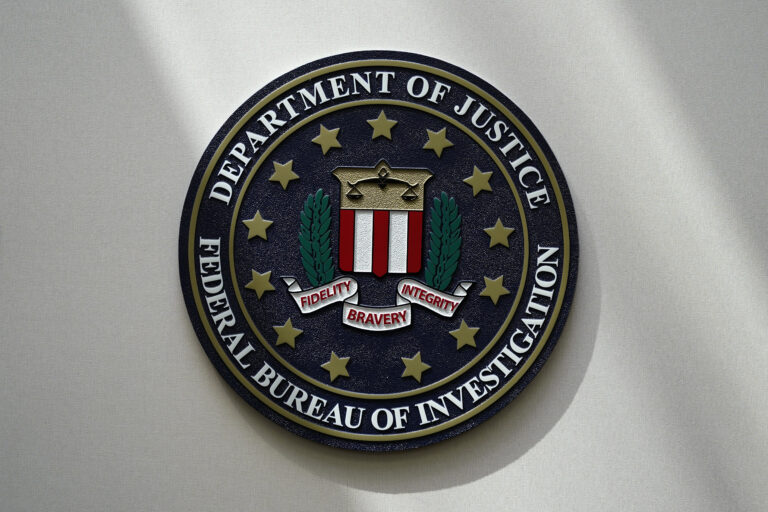 THE FOLLOWING IS A NEW YORK TIMES EDITORIAL:
THE FOLLOWING IS A NEW YORK TIMES EDITORIAL:
On Monday, in their final debate, Mitt Romney denounced President Obama for creating “tension” and “turmoil” with Israel and chided him for having “skipped Israel” during his travels in the Middle East. Throughout the campaign, Mr. Romney has repeatedly accused Mr. Obama of having “thrown allies like Israel under the bus.”
But history tells a different story. Indeed, whenever the United States has put serious, sustained pressure on Israel’s leaders — from the 1950s on — it has come from Republican presidents, not Democratic ones. This was particularly true under Mr. Obama’s predecessor, George W. Bush.
Just one week before the Iraq war began in March 2003, Mr. Bush was still struggling to form a broad international coalition to oust Saddam Hussein. Unlike in the 1991 Persian Gulf war, Russia, a permanent member of the United Nations Security Council, decided to opt out, meaning that the United Nations could not provide formal legitimacy for a war against Mr. Hussein. Britain was almost alone in aligning itself with America, and Prime Minister Tony Blair’s support was deemed crucial in Washington.
Just as the British Parliament was about to approve the joint venture, a group of Mr. Blair’s Labour Party colleagues threatened to revolt, demanding Israeli concessions to the Palestinians in exchange for their support for the Iraq invasion. This demand could have scuttled the war effort, and there was only one way that British support could be maintained: Mr. Bush would have to declare that the “road map” for Middle East peace, a proposal drafted early in his administration, was the formal policy of the United States.
Israel’s prime minister at the time, Ariel Sharon, had been vehemently opposed to the road map, which contained several “red lines” that he refused to accept, including a stipulationthat the future status of Jerusalem would be determined by “a negotiated resolution” taking into account “the political and religious concerns of both sides.” This wording implied a possible end to Israel’s sovereignty over all of Jerusalem, which has been under Israeli control since 1967.
On March 13, 2003, senior Israeli officials were summarily informed that the United States would publicly adopt the draft road map as its policy. Washington made it clear to us that on the eve of a war, Israel was expected to refrain from criticizing the American policy and also to ensure that its sympathizers got the message.
The United States insisted that the road map be approved without any changes, saying Israel’s concerns would be addressed later. At a long and tense cabinet debate I attended in May 2003, Mr. Sharon reluctantly asked his ministers to accept Washington’s demand. Benjamin Netanyahu, then the finance minister, disagreed, and he abstained during the vote on the cabinet resolution, which eventually passed.
From that point on, the road map, including the language on Jerusalem, became the policy bible for America, Russia, the European Union and the United Nations. Not only was Israel strong-armed by a Republican president, but it was also compelled to simply acquiesce and swallow the bitterest of pills.
Three years later, the Bush administration again pressured Israel into supporting a policy that ran counter to its interests. In early 2006, the terrorist group Hamas ran candidates in the Palestinian legislative elections. Israel had been adamant that no leader could campaign with a gun in his belt; the Palestinian party Fatah opposed Hamas’s participation, too. But the White House would have none of this; it pushed Fatah to allow Hamas candidates to run, and pressured Israel into allowing voting for Hamas — even in parts of East Jerusalem.
After Hamas won a clear majority, Washington sought to train Fatah forces to crush it militarily in the Gaza Strip. But Hamas pre-empted this scheme by taking control of Gaza in 2007, and the Palestinians have been ideologically and territorially divided ever since.
Despite the Republican Party’s shrill campaign rhetoric on Israel, no Democratic president has ever strong-armed Israel on any key national security issue. In the 1956 Suez Crisis, it was a Republican, Dwight D. Eisenhower, who joined the Soviet Union in forcing Israel’s founding father, David Ben-Gurion, to withdraw from the Sinai Peninsula after a joint Israeli-British-French attack on Egypt.
In 1991, when Iraqi Scud missiles rained down on Tel Aviv, the administration of the first President Bush urged Israel not to strike back so as to preserve the coalition of Arab states fighting Iraq. Prime Minister Yitzhak Shamir resisted his security chiefs’ recommendation to retaliate and bowed to American demands as his citizens reached for their gas masks.
After the war, Mr. Shamir agreed to go to Madrid for a Middle East peace conference set up by Secretary of State James A. Baker III. Fearful that Mr. Shamir would be intransigent at the negotiating table, the White House pressured him by withholding $10 billion in loan guarantees to Israel, causing us serious economic problems. The eventual result was Mr. Shamir’s political downfall. The man who had saved Mr. Bush’s grand coalition against Saddam Hussein in 1991 was “thrown under the bus.”
In all of these instances, a Republican White House acted in a cold and determined manner, with no regard for Israel’s national pride, strategic interests or sensitivities. That’s food for thought in October 2012.
Efraim Halevy was the director of the Mossad from 1998 to 2002 and the national security adviser to the Israeli prime minister, Ariel Sharon, from October 2002 to June 2003.






17 Responses
The New York Times as a source about the Israeli goverment, two weeks before the election — you should have included a disclaimer that this is from a partisan Democratic mouthpiece. The Times abandonned journalism years ago when they forgot to limit their politics to the editorial pages.
Typical manure from the uber liberal fish wrap! It was GWB who gave Israel as much leeway as they needed to do what they had to. History shows it was the republicans who understood Israel’s situation.For example, Nixon gave arms to beat the arab invasion of 73. Carter & Clinton were both and continue to be oysvorfs. Although I liked the present Clinton gave Arafat ym’sh (a used cigar!).
The left especially Debbie Blabbermouth Schultz will LIE & LIE. They think as long as they say it, its the truth.
I wonder who hates Israel and Orthodox Jews (like Sholom Rubashkin and Jonathan Pollard) more: the Sulzbergers (former Jews who converted to Episcopalean) — who own the New York Times — or President Hussein Obama?
yeshiva world news, why cant you make up your own piece? why are you promoting an article that supports OBAMA, who is the most ANTI ISRAEL president in history?? your readers daven by the kosel, and If it was up to him, they wouldnt even have that. He invites hamas and hizbolla leaders and shuns the jewish prime minister. btw, clinton and carter did serious damage to Israel. It is a one sided piece, and I expect more from YWN. what a disappointment.
Rav avigdor Miller once said that a man with terrible mental illness called him for help. The Rav asked him if he read the ny times to which the man replied “oh yes from cover to cover every day” the Rav replied ” when you stop reading the paper give me a call”
So, Nobama did NOT throw Israel under the bus?? Halevy’s missive is irrelevent. Romney was speaking with Zerobama, not giving a world history lesson. Besides, today’s Democratic Party shows no resemblence to your father’s Democratic Party.
its seems that YWN is rooting for the wrong side. I don’t think your readers agree with you on this one. clinton was awful to the jewish state, and carter continues to be. why was this article put up? Can’t YWN write their own stuff, or is this a cut and paste “news” site????
This article was written by a former Mossad chief and a scurity expert who seems to know what he is talking about.
I remember these events includind the 1956 Suez crises, and the account here is accurate.
Despite Nixon’s eventual re-arming of Issrael, henry Kissinger justified his foot dragging at the time as ” a desire to see Israel bleed a little.”
While I think these points are valid for what they are worth, I think it’s more important to look at what happened on the ground, when things count, like Mark Levin’s examples.
” a desire to see Israel bleed a little.”
you’re quoting Kissinger, the assililated, liberal, self-hating guy with uprooted Jewish roots (won’t call him Jewish) was a Democrat and a professor at Harvard.
Nixon, the goy, supplied Israel with the weaponry necessary.
Rather have Nixon than Kissinger or DNC loser, Debbie “expert on anything Jewish,” any day.
Sirs, please quote the NYT in print editions only. Online doesn’t help me care for my puppy.
Typical NYT… Let’s assume for argument’s sake that ALL prior republican presidents were rabid anti-semites and conversely every democrat was great for Israel. FACT NOW IS, Barack Obama YM”S is the one who skipped israel NOT Mitt Romney; Obama stated “daylight between us n israel” NOT Romney; Obama that snubbed Bibby NOT Romney. I wonder if the writer asked Bibby HIS opinion, HIS feelings on the matter, or any other jew for that matter. Most telling about the article is the very essence of it. I, as a jewish voter, don’t need a comprehensive history lesson to know who my friends are and who my enemys are.
#5 It’s very noteworthy for YWN to let me (and others like me who don’t read it) in on the distortions and lies being perpetuated in the NYT.
OK, we are supposed to discuss what the country and world will be like in 2016:
The Congress spends well beyond any meaningful hope of getting revenue. They try to raise taxes but it has a negligible effect of revenue since the higher taxes depress economic activity. The Treasury loses the ability to find conventional buyers for its bonds at low interest rates, so interest rise back to the levels of the recent past. The “bill” comes due from the printing press and we get serious inflation (think of what happened in Israel the previous generation). Most of the Democrats policies, for good or ill, fall apart due to the economic disintegration. Next election will be between extremists (real socialists on the left, people who make the Tea Party look like wobblies on the right).
how can you not correct this article. it is NOT an editorial by the Chief of the Mossad during the Bush administration.
By censoring the true nature this article- an article that is the most important article regarding the safety of Israel maybe in all of history ( biderech hateva)- you are damaging the Klal Yisroel.
It is true that from an Israeli point of view the worst US president was Eisenhower, and George Bush Sr (with James Baker) was pretty bad too. But let’s not forget the antisemite Carter, who twisted Begin’s arm to agree to the disastrous Camp David treaty, which is the root of most of our problems today. Bush Jr, for all his misunderstanding and mishandling of Israel, genuinely loved it and thought he was doing the best for it. And Nixon saved Israel, whatever else he did.